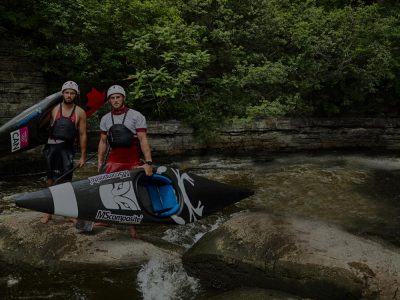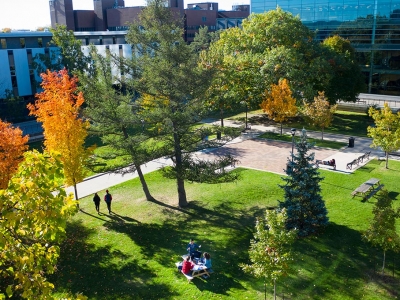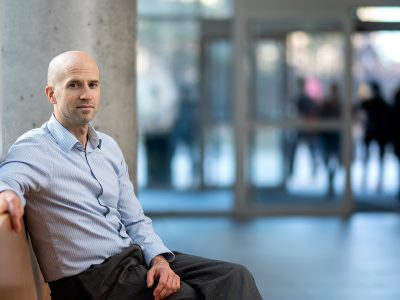By Elizabeth Howell
Photos by Chris Roussakis
While a learning disability is often seen as a weakness, Carleton University’s Larry McCloskey knows that with the proper support, it can turn into a strength.
The director of the Paul Menton Centre for Students with Disabilities (PMC) has worked with thousands of students who have access to individual counselling to improve weak points – sometimes to the extent where they excel over the general student population.
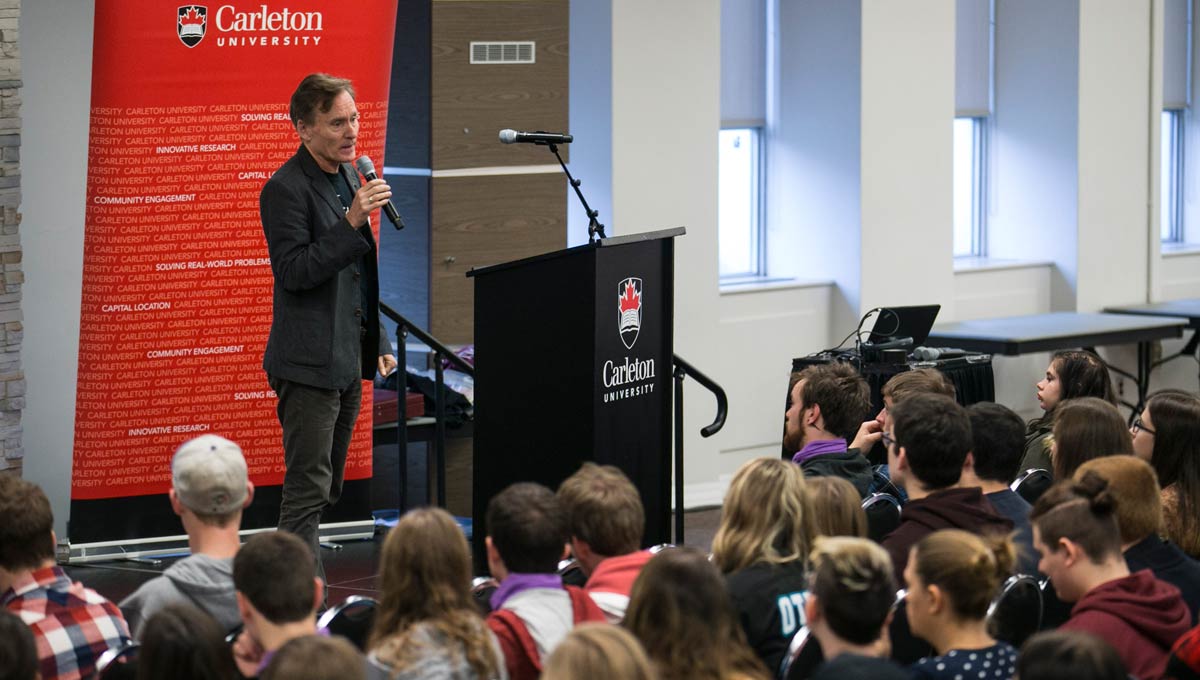
Larry McCloskey, director of the Paul Menton Centre for Students with Disabilities (PMC)
And that support begins even before students enrol at Carleton. McCloskey, transition co-ordinators Linda Stewart and Paddy Stewart, and dozens of volunteers offer the Make the CUT program every year for upper-year high school students with a disability. The goal is to walk students through the admissions process and to show them there are many successful people with learning disabilities taking on post-secondary studies.
“When we started this in 2005, the reaction we got was this was a good event, but you’ll never get students to go,” McCloskey said.
“We sold out at 250 students. It’s the largest gathering of students with disabilities in Canada.”
The one-day event is offered twice a year – in the fall at Carleton and in the spring at Algonquin College. The latest Make the CUT session ran Nov. 16, with the spring session planned for May. More than 6,500 students have benefitted from the process, which includes an afternoon mentor panel. It showcases current university and college students with learning disabilities who have excelled.
“It’s one thing to have talking heads that have been out of university or college for a while, but to have someone two years older than that scared, incoming 17-year-old – that really works well,” said McCloskey. “High school students can relate to that.”
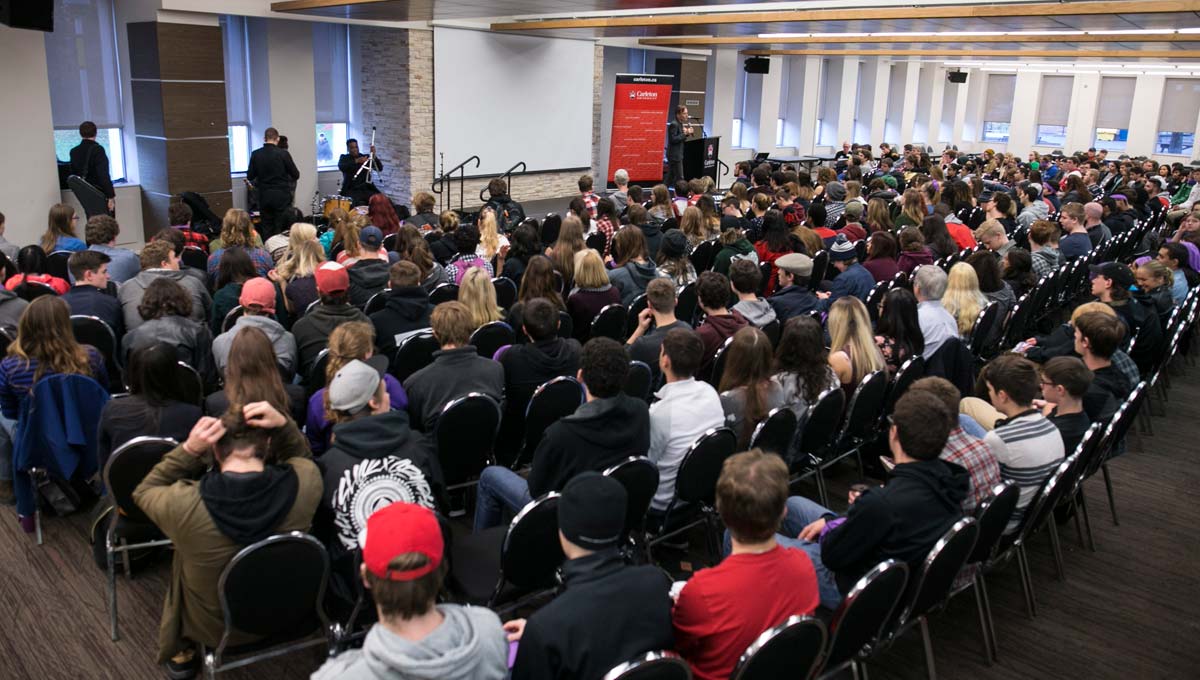
Make the CUT:
Smoothing the transition
In Canada, an estimated 500,000 adults have learning disabilities – including students in post-secondary studies, according to a 2006 Statistics Canada survey.
Although many people have disabilities, there is a perception among these students that there is something wrong with them, McCloskey said. That’s because in individual high school classrooms, there may be only one student in a class of 30 with a disclosed disability.
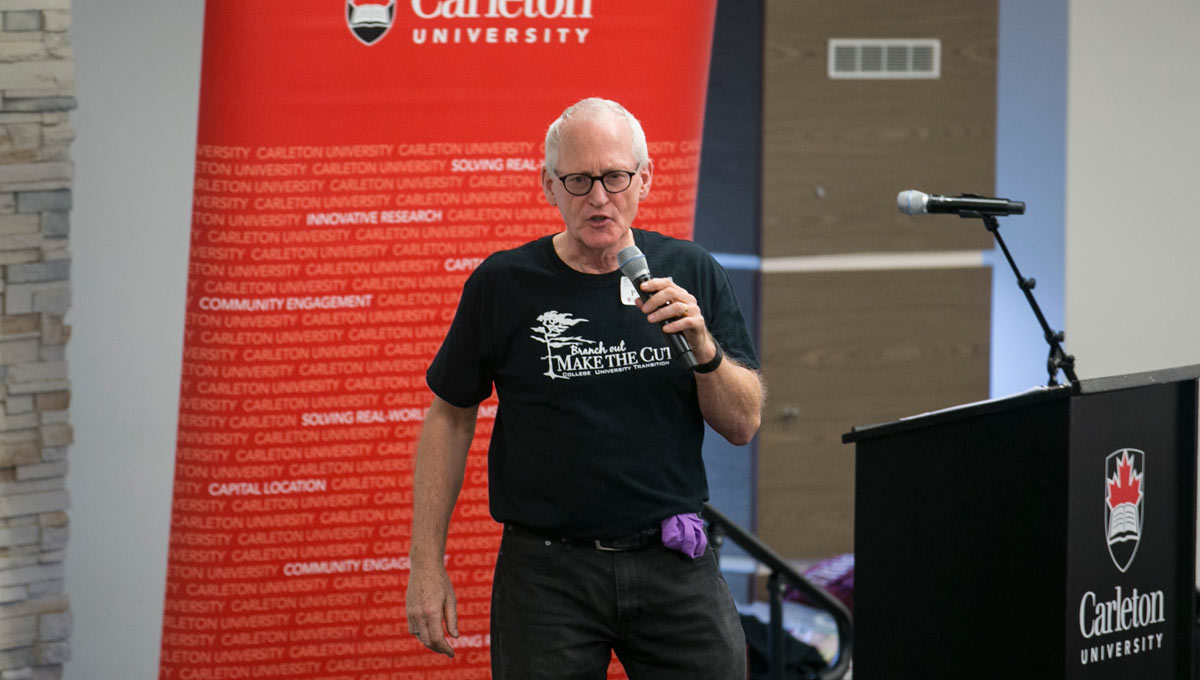
Paddy Stewart, a Carleton alum, motivational speaker and Make the CUT transition co-ordinator
Carleton has been offering disability support for decades, including founding the PMC in 1990. There were also predecessor programs to Make the CUT for high school students with disabilities, including a camp called the Summer Academic Institute for Learning (SAIL).
Make the CUT was created for a more laser-focused mandate: to help students through the tough transition between high school and university. The documentation process can be overwhelming, so the program provides workshops for students to learn what is required. It’s specifically targeted for students with learning disabilities or who have Attention Deficit Hyperactivity Disorder (ADHD).
The organizers are careful to make the program relevant for students wanting to apply anywhere – not just Carleton and Algonquin. Over the years, the area served has grown considerably. There are now six school boards involved serving hundreds of square kilometres in and around Ottawa. Students come as far away as Pembroke, Maxville, Cornwall and Brockville to take advantage of the program, rising early in the morning to bus in for their workshops.
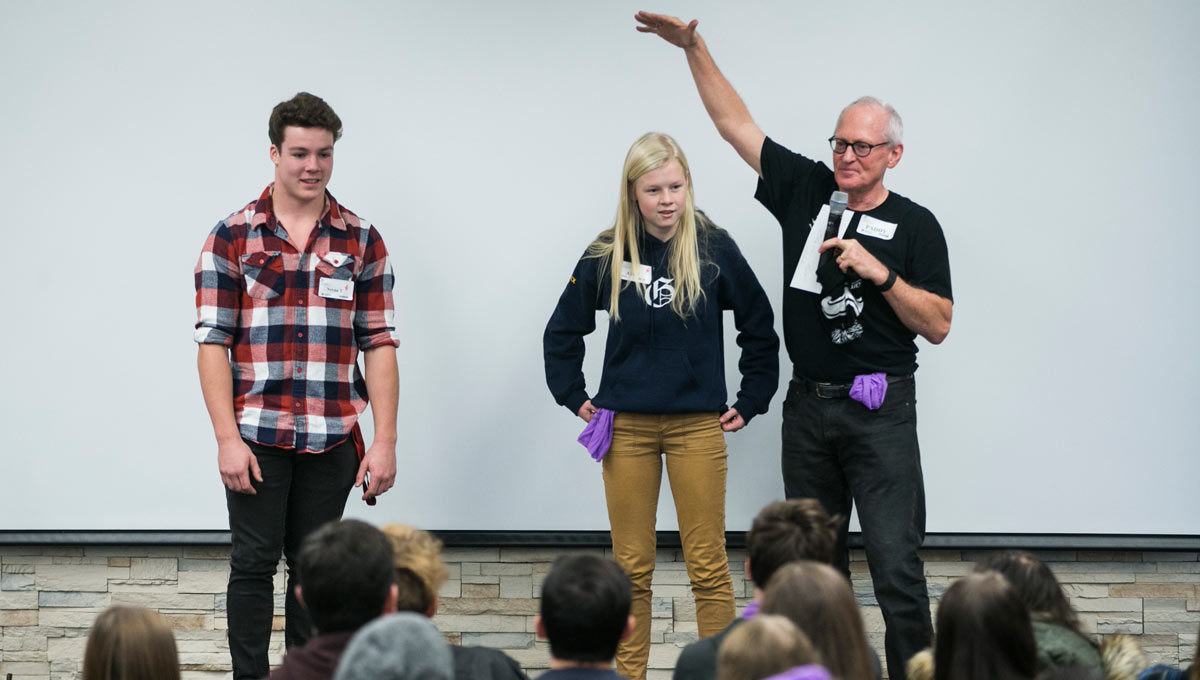
Events on site
The program is a joint initiative of PMC and Algonquin’s Centre for Accessible Learning, and works closely with the public and Catholic school boards of Ottawa-Carleton, Upper Canada and Renfrew County. Participants typically register with their school’s special education teacher roughly four to six weeks before the event takes place.
“Linda and I look at this from the students’ point of view, to make it user-friendly. We keep it active and age appropriate,” said Paddy Stewart. That said, the core of the program has barely changed since its first iteration more than a decade ago.
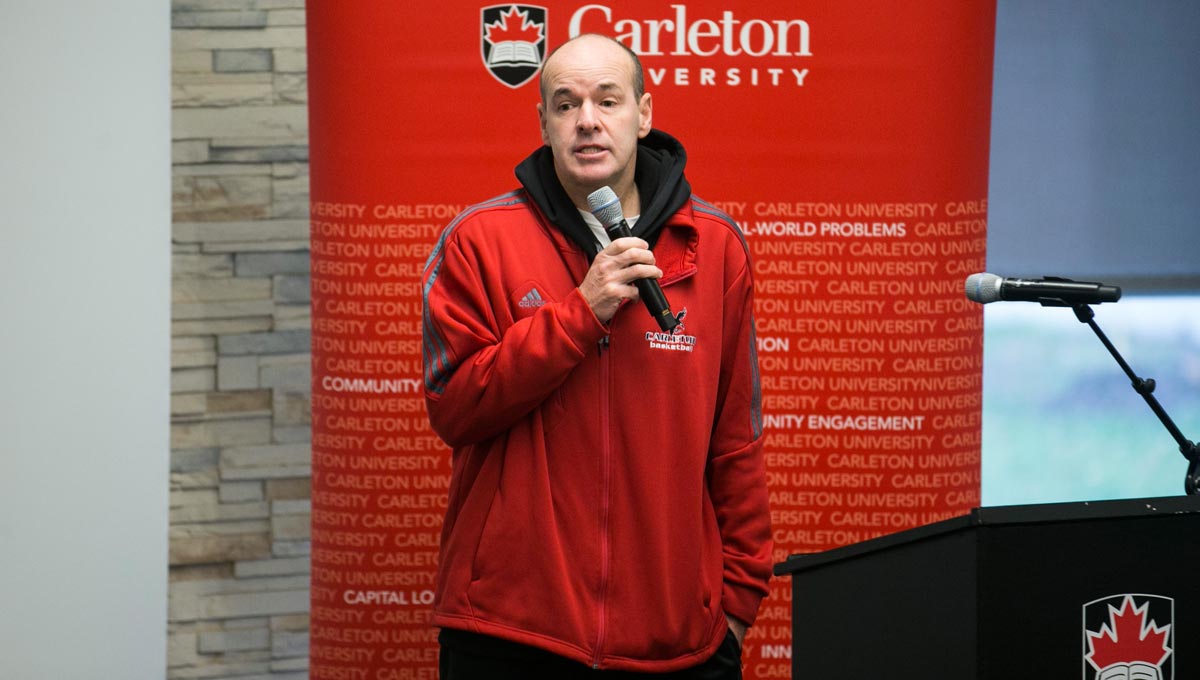
Dave Smart, head coach of the Carleton Ravens men’s basketball team
One of the annual highlights for Make the CUT is a motivational speech by Dave Smart, head coach of the Carleton Ravens men’s basketball team, which has won six straight Canadian Interuniversity Sport titles – and 12 in the last 14 years.
Under Smart’s leadership, the Ravens have won 91.6% of 538 games as of the end of last season, making them one of the most winning teams in the CIS (recently rebranded as U Sports) history.
“He talks to them in a way kids are not used to,” McCloskey said, “and tells them they can’t do it on their own and they need to ask for help.”
Also central to Smart’s message is the need to work hard and never give up, McCloskey added.
Besides Smart’s speech and the mentorship panel, students also attend a series of workshops that address matters such as assistive technology, learning strategies and planning their transitions to post-secondary life. Teachers accompanying the students get professional development of their own from representatives of the disability centres at Carleton and Algonquin. Even lunchtime is filled with activities, as students are exposed to 20 exhibitors from institutions that offer student support services.
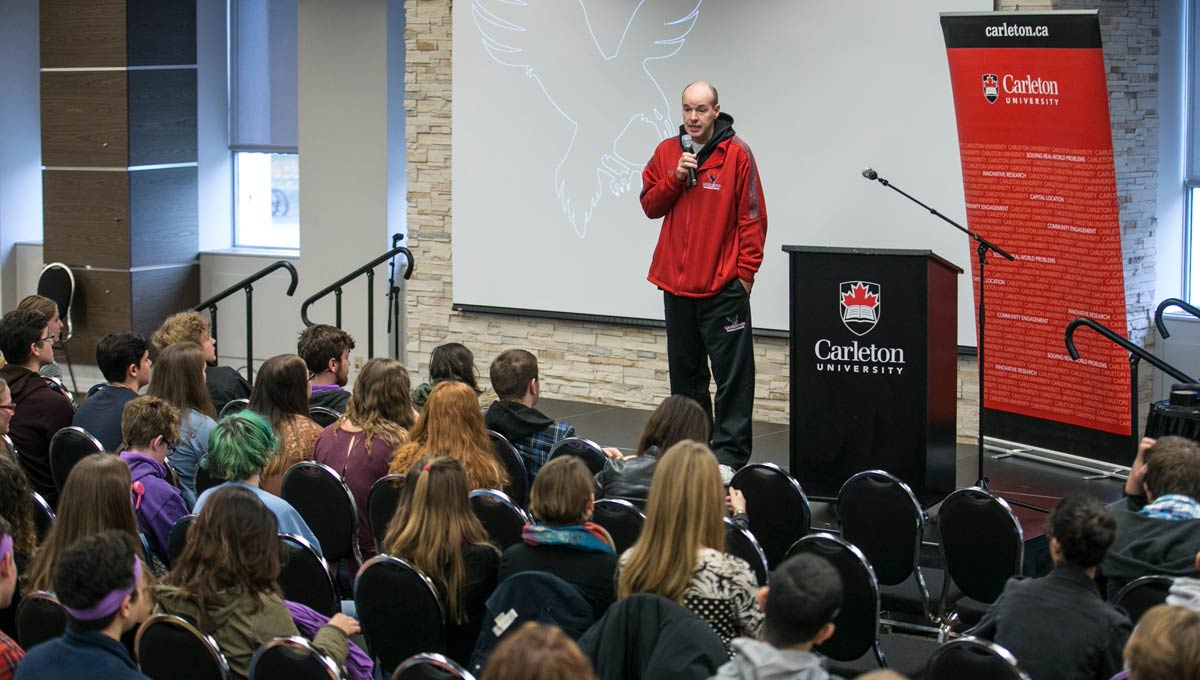
Thursday, November 17, 2016 in Accessibility, New/Unique Programs, Student Experience
Share: Twitter, Facebook
